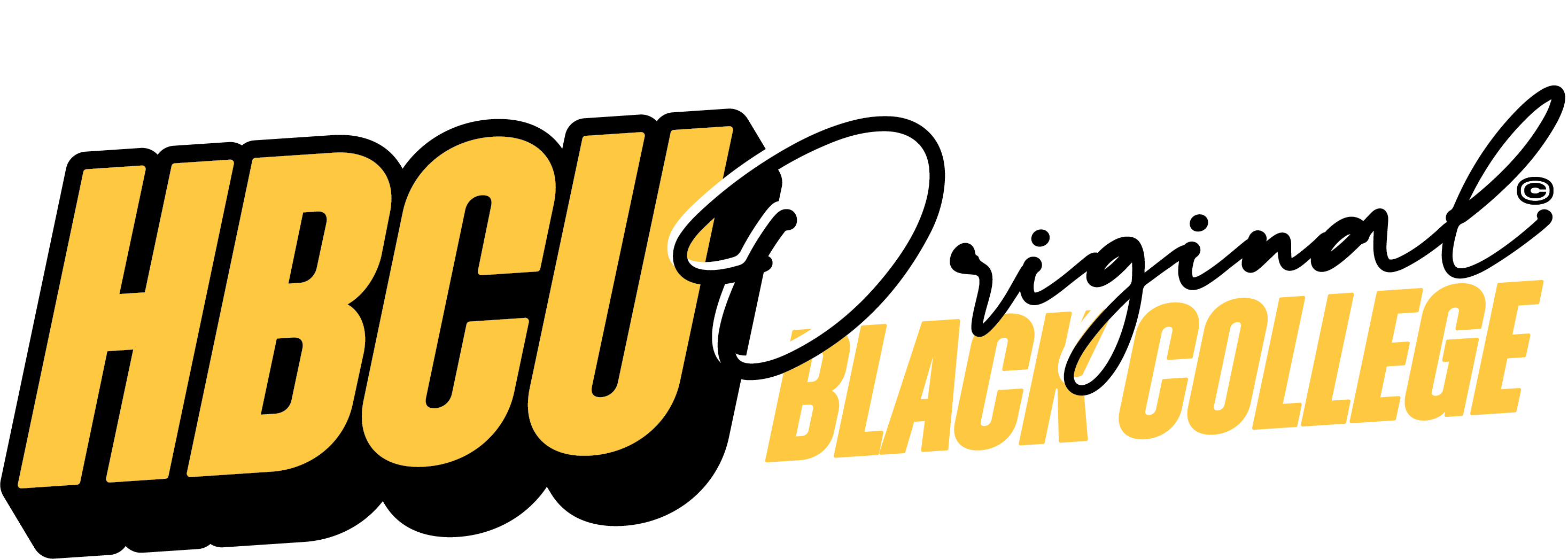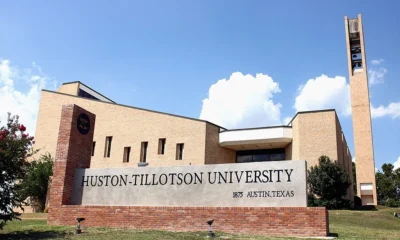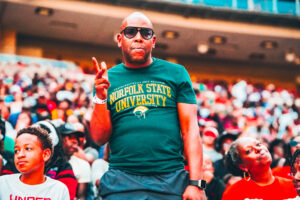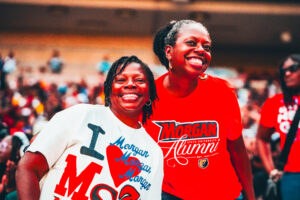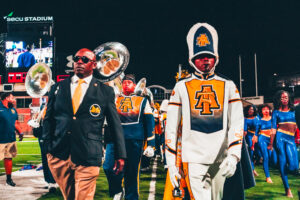Campus
A Day in the Life: Exploring Campus Culture at HBCUs
Howard Univ enduring a legacy

At HBCU Original, we are committed to delving into the heart and soul of Historical Black Colleges and Universities (HBCUs). Today, we invite you to embark on a journey with us as we explore the vibrant campus life that defines these esteemed institutions.
As the sun rises over the historic campus of Howard University, students begin to fill the pathways, their laughter and chatter filling the air with energy and excitement. From the iconic “Howard University” sign to the lush greenery of the Yard, every corner of the campus exudes a sense of pride and belonging.
Our first stop is the student center, a bustling hub of activity where students gather between classes to socialize, study, and grab a bite to eat. Inside, the walls are adorned with posters advertising upcoming events, club meetings, and cultural celebrations. From poetry slams to dance competitions, there’s always something happening at Howard.
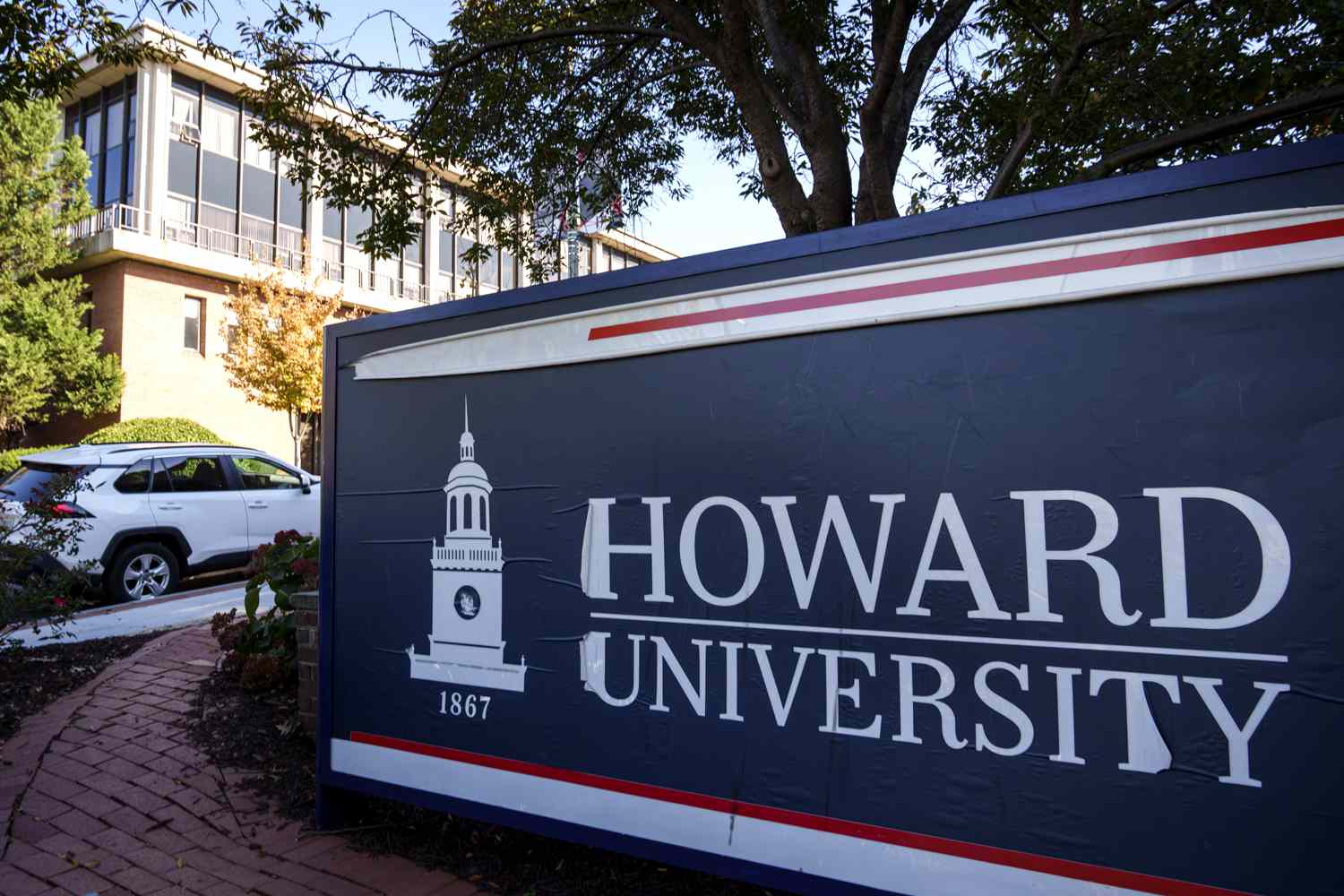
Next, we head to the quad, where students sprawl out on blankets, soaking up the sun and enjoying impromptu jam sessions. The sound of drums fills the air as members of the marching band practice their routines, their precision and passion a testament to the rich musical tradition of HBCUs.
As we wander through the academic buildings, we’re struck by the sense of community and camaraderie that permeates every classroom and lecture hall. Professors know their students by name, and mentorship is a cornerstone of the educational experience. Whether it’s a lively debate in a political science class or a hands-on lab in the science building, learning at Howard is an immersive and transformative experience.
But campus life isn’t just about academics—it’s also about service and activism. At Howard, students are encouraged to be agents of change, and social justice is woven into the fabric of daily life. From volunteer opportunities in the surrounding community to student-led protests and rallies, Howard students are committed to making a difference in the world.
As the day draws to a close, we make our way to the campus amphitheater, where a crowd has gathered for an outdoor concert featuring local artists and student performers. The music is infectious, and soon we’re dancing and singing along with the crowd, swept up in the spirit of unity and celebration that defines the HBCU experience.
As we reflect on our day spent exploring campus life at Howard University, one thing is abundantly clear: HBCUs are more than just institutions of higher learning—they are vibrant communities that foster growth, leadership, and a lifelong sense of pride and belonging. And at HBCU Original, we are honored to celebrate and amplify the rich history and enduring legacy of these remarkable institutions

Campus
The Sound of the Yard: The Legacy of HBCU Marching Bands
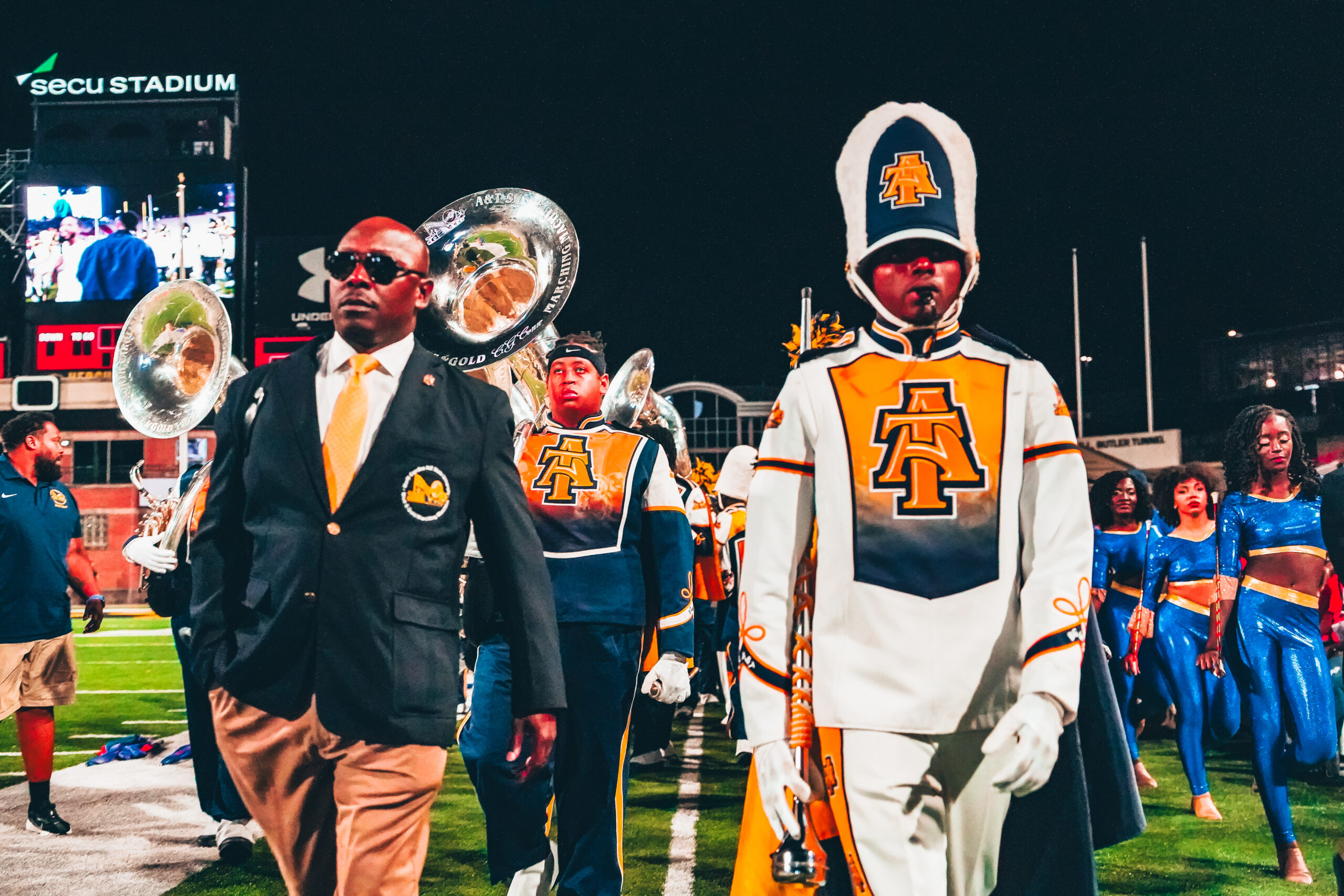
When the drums start rolling and the brass section blasts the first note, something magical happens — the crowd rises, feet start stomping, and the stadium becomes a stage. That’s the power of HBCU marching bands — the lifeblood of the yard and the heartbeat of Black college pride.
Across the country, these bands have redefined what it means to perform. It’s not just about music — it’s about precision, power, and pride. Each halftime show tells a story of community, culture, and creative excellence that stretches from the campus yard to the world stage.
Legendary programs like The Human Jukebox of Southern University and The Sonic Boom of the South from Jackson State University have set the tone for decades, known for their dynamic choreography and iconic sound. The Marching 100 of Florida A&M University revolutionized marching band performance with intricate formations and high-energy brass arrangements, influencing college and high school bands globally.
But they’re not alone in this legacy.
-
The Ocean of Soul (Texas Southern University) brings unmatched groove and funk to every performance.
-
The Aristocrat of Bands (Tennessee State University) made history as the first HBCU band to win a GRAMMY Award in 2023 for “The Urban Hymnal.”
-
The Blue and Gold Marching Machine (North Carolina A&T State University) blends traditional sound with modern flair, leading parades like the Macy’s Thanksgiving Day Parade.
-
The Marching Storm (Prairie View A&M University) commands attention with style and showmanship, competing toe-to-toe with any major college program.
-
The Spartan Legion (Norfolk State University) continues to uphold the proud musical traditions of the MEAC and SWAC.
-
The Marching Maroon & White (Alabama A&M University) exemplifies disciplined performance and HBCU pride.
Additional extraordinary programs include:
-
The Trojan Explosion (Virginia State University) — high-energy performances with innovative formations.
-
The Red Sea of Sound (Winston-Salem State University) — signature style and powerful brass arrangements.
-
The Symphony of Soul (Bowie State University) — blending soulful melodies with marching precision.
-
The Marching Force (Hampton University) — a legacy of excellence on every field.
-
Showtime Band (Howard University) — dynamic, creative, and nationally recognized performances.
-
Sound Machine (North Carolina Central University) — a staple of modern HBCU band excellence.
From local parades to the Honda Battle of the Bands, HBCU bands bring an experience that transcends entertainment — it’s cultural storytelling through sound.
Their influence has reached far beyond the yard — from collaborations with Beyoncé’s Homecoming to halftime shows at the Super Bowl. These bands symbolize the discipline, excellence, and creativity that define HBCU culture.
For the students who march, every note is a tribute — to their ancestors, their schools, and the legacy they represent. The sound of the yard will always be more than music — it’s the soul of the HBCU experience.
#HBCUOriginal | #TheSoundOfTheYard | #BlackCollegeCulture | #HBCUBands
📺 Visit HBCUOriginal.com | 🎥 Watch more at YouTube.com/@THEHBCUORIGINAL
Campus
The Capitol Battle of the Bands 2025
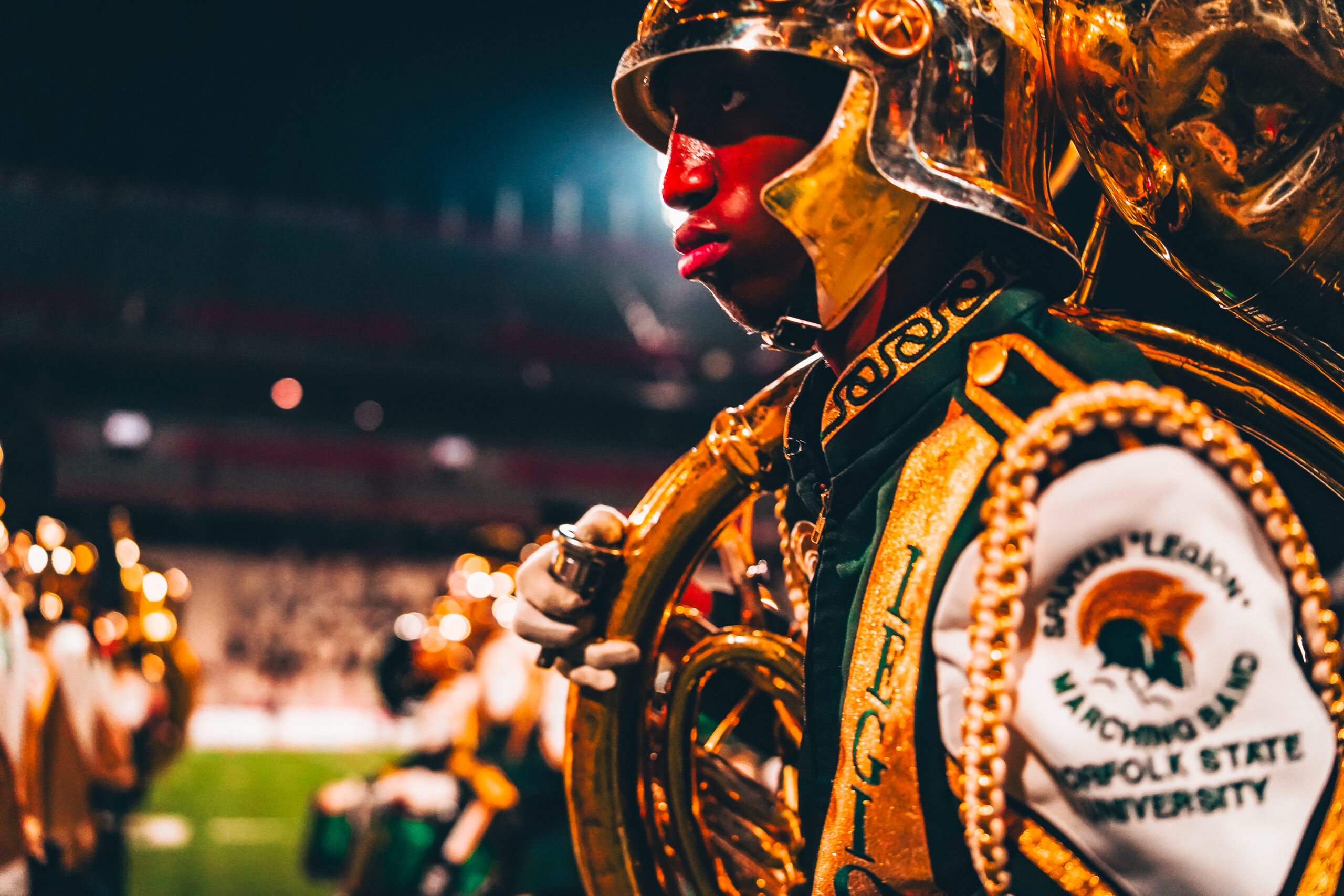
Hosted by High Stepping Nationals | SECU Stadium – College Park, Maryland
The air in College Park was thick with rhythm, pride, and school spirit as the Capitol Battle of the Bands took over SECU Stadium. Hosted by High Stepping Nationals, this electrifying event brought together some of the most dynamic marching bands, drumlines, and spirit teams in the country — all under one roof, all for one culture.
From the first booming drumbeat to the final blast of brass, the stands shook with energy as crowds from across the East Coast gathered to witness HBCU greatness and local high school talent take center stage.
🎶 The Lineup
The field was blessed by the presence of elite bands including:
-
Norfolk State University Spartan Legion
-
North Carolina A&T Blue & Gold Marching Machine
-
Virginia State University Trojan Explosion
-
Winston-Salem State University Red Sea of Sound
-
Bowie State University Symphony of Soul
-
Hampton University Marching Force
-
Howard University Showtime Band
-
North Carolina Central University Sound Machine
-
PGCPS High School Pride, representing the best young talent across Prince George’s County
Each band brought their own flavor — from show-stopping arrangements and precision drills to heart-thumping drumline battles that left the crowd roaring.
💃🏽 The Spirit of the South
The cheerleaders, flag teams, and dance squads elevated the night with unmatched grace and attitude. From the Hampton Force dancers to the WSSU cheerleaders strutting into the stadium, every move reminded the audience that style, pride, and culture are at the heart of every performance.
🥁 The Drumline Faceoff
When Virginia State’s Trojan Explosion Drumline met Norfolk State’s Spartan Legion Drumline on the field, the night hit another level. Beats collided, sticks flew, and the energy was pure adrenaline. This was not just a battle — it was a statement.
🌟 PGCPS Pride
Representing Maryland’s future stars, the PGCPS High School Pride Ensemble showcased young musicians who are already marching toward excellence. Their performance was a reminder that the HBCU legacy is alive and growing strong in local schools.
🎥 Watch the Full Experience
Missed the live show? Don’t worry — you can relive every moment, every note, every move.
📺 Full Highlights: Watch now on YouTube – HBCU Original
🎬 YouTube Channel: @THEHBCUORIGINAL
Campus
Tomorrow’s Leaders, Today’s Tech: How HBCUs are Shaping the Future
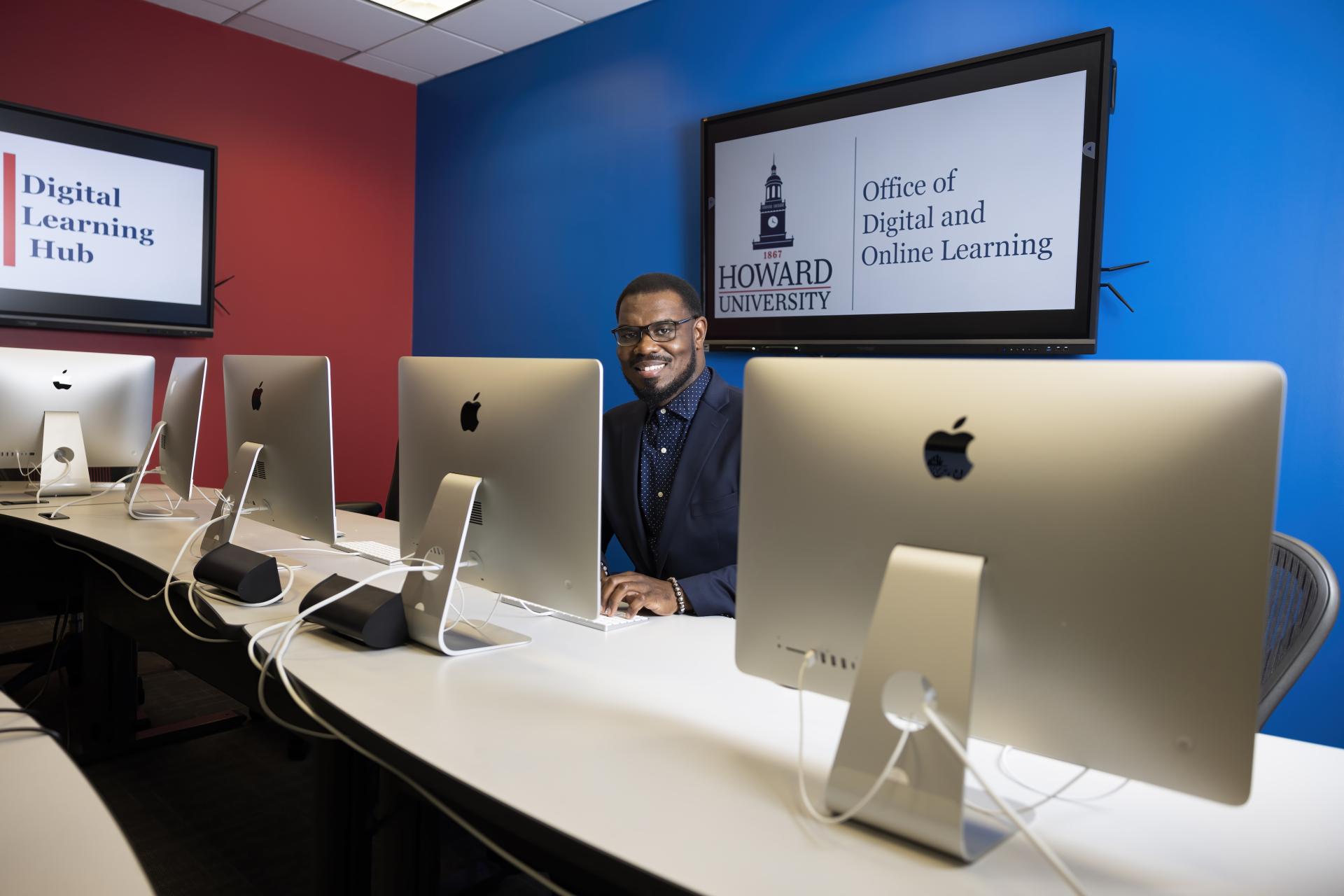
HBCUs Tech Forward: Innovating Tradition for 2025 and Beyond
Historically Black Colleges and Universities (HBCUs) are steeped in rich history and enduring traditions, but make no mistake: these institutions are anything but stuck in the past. Today, HBCUs are vigorously embracing the future, strategically integrating cutting-edge technology into every facet of academic life, research, and campus operations. Far from compromising their unique cultural heritage, they are demonstrating how to blend tradition with innovation seamlessly, preparing students to lead in an increasingly digital world.
From virtual learning platforms that expand access and flexibility to advanced STEM programs pushing the boundaries of discovery, HBCUs are re-envisioning what modern education looks like. They are not just adopting technology; they are actively shaping its future and ensuring their students are at the forefront.
Leading the Charge: HBCUs Embracing Technology
Several HBCUs are standing out for their commitment to technological advancement:
- North Carolina A&T State University: A national leader in engineering and STEM fields, NC A&T is known for its robust research programs, including those in cybersecurity, advanced manufacturing, and renewable energy. Their students are actively involved in cutting-edge projects, often in partnership with industry leaders, positioning them for high-demand careers.
- Spelman College: While rooted in liberal arts, Spelman has made significant strides in STEM, offering strong programs in computer science, data science, and health sciences. They are fostering an environment where Black women excel in tech, encouraging innovation through initiatives like their “Spelman College Center of Excellence for Minority Women in STEM.”
- Howard University: As a top-tier research institution, Howard is continually expanding its technological footprint. From its pioneering work in artificial intelligence and machine learning to robust digital media programs, Howard prepares students to be innovators and ethical leaders in the tech space. They are also leveraging technology to enhance remote learning capabilities and collaborative research across departments.
- Florida A&M University (FAMU): FAMU is making significant investments in its STEM infrastructure, with a strong focus on programs in information technology, environmental engineering, and pharmaceutical sciences. Their commitment to technological literacy ensures that graduates are well-equipped for diverse professional paths, often integrating practical, hands-on experience with theoretical knowledge.
These institutions, and many others, are equipping students with the critical skills needed for tomorrow’s workforce – from coding and data analytics to digital storytelling and biotechnological innovation. At the same time, HBCUs meticulously maintain their vibrant cultural traditions, ensuring students experience the best of both worlds: a deep connection to their heritage alongside preparation for a technologically advanced future.
Conclusion:
Innovation and tradition are not opposing forces at HBCUs; they are complementary strengths. By wholeheartedly embracing technology while profoundly honoring their rich history and cultural identity, these institutions are preparing students not just to adapt to a rapidly changing world, but to actively shape it. HBCUs are setting a powerful standard for what modern, culturally responsive, and future-focused education truly means.
Campus
Forged in Faith, Renamed for Freedom: The Lincoln University Story
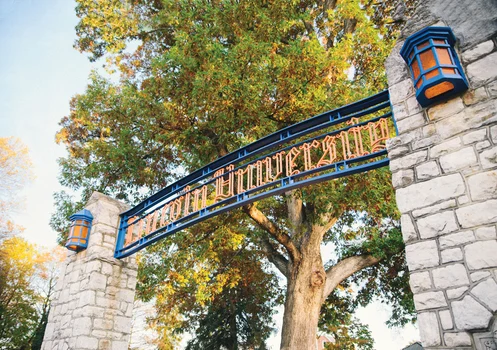
The Founding Vision: The Ashmun Institute (1854)
In the decade before the Civil War, opportunities for the higher education of African Americans were almost nonexistent. In this climate, a white Presbyterian minister named Reverend John Miller Dickey and his wife, Sarah Emlen Cresson, undertook a revolutionary project in Chester County, Pennsylvania. On April 29, 1854, they secured a charter from the Commonwealth of Pennsylvania to establish The Ashmun Institute.
The institute was named in honor of Jehudi Ashmun, a religious leader and social reformer associated with the American Colonization Society, a movement that encouraged the migration of free African Americans to Liberia. The initial mission of the institute was to provide a classical, scientific, and theological education for young men of African descent, with an early focus on training them to become missionaries and leaders.
The founding of the Ashmun Institute was an unprecedented step. It was the first institution in world history dedicated to providing a university-level liberal arts education for Black men, empowering them with the same rigorous academic training available to white students at the time.
A New Era and a New Name: Lincoln University (1866)
The end of the Civil War in 1865 and the subsequent abolition of slavery marked a profound turning point for the nation and for the Ashmun Institute. The country was grappling with the challenges of Reconstruction and the new reality of millions of formerly enslaved people seeking education and opportunity.
In 1866, just one year after the assassination of President Abraham Lincoln, the institute’s board of trustees voted to rename the institution in his honor. This change to Lincoln University was a tribute to the late president, revered for his role in the emancipation of enslaved people.
The new name also signaled a broadening of the university’s mission. While the foundational goal of providing excellent education remained, the focus expanded beyond missionary work to preparing African American men for leadership roles within the United States. As Lincoln University, it dedicated itself to educating leaders, professionals, and activists who would go on to challenge injustice and shape a new future.
From its pioneering start as the Ashmun Institute to its transformation into Lincoln University, the institution has remained a pillar of academic excellence and a crucial incubator of Black leadership, boasting celebrated alumni like U.S. Supreme Court Justice Thurgood Marshall and poet Langston Hughes.
Campus
“Navigating Identity at HBCUs: Where Culture Meets Academic Excellence”

Navigating Identity: The Intersection of Culture and Academia at HBCUs
College is often described as a time of learning and growth, but for many students, it is much more than academics—it is a journey of self-discovery. At Historically Black Colleges and Universities (HBCUs), this journey is uniquely enriched by culture, tradition, and community. HBCUs are not just institutions of higher learning; they are environments that nurture identity, heritage, and leadership while preparing students to thrive academically and socially.
Embracing Culture and Heritage
One of the most defining aspects of HBCU life is the deep connection to Black culture and history. Campus traditions, homecomings, step shows, and cultural festivals are not only celebrations—they are opportunities for students to explore and express their identities. For example, homecoming events at schools like Howard University or Florida A&M University bring together generations of students and alumni to celebrate achievements, honor traditions, and cultivate pride in their shared heritage.
Cultural events provide students with spaces to reflect on their roots, understand their place in history, and develop a sense of belonging. This connection to culture fosters confidence and resilience, empowering students to navigate the challenges of college life while staying grounded in who they are.
The Intersection of Identity and Academia
HBCUs provide a unique environment where culture and academics intersect seamlessly. Students are encouraged to excel in rigorous programs while embracing the aspects of their identity that make them unique. Programs in STEM, business, arts, and social sciences often incorporate culturally relevant perspectives, ensuring that education at HBCUs is both challenging and empowering.
This environment encourages students to develop leadership skills, critical thinking, and self-awareness. The support of faculty, mentors, and peers helps students confront challenges, celebrate accomplishments, and prepare for life after graduation. In essence, HBCUs equip students with the tools to excel academically while maintaining pride in their heritage.
Building Lifelong Networks
Another significant aspect of HBCU life is the sense of community and the networks students build. Friendships formed in classrooms, dorms, and student organizations often become lifelong connections. Alumni networks remain strong, providing mentorship, career opportunities, and guidance long after graduation. These networks reinforce the values of collaboration, mutual support, and shared success—foundational elements in the development of personal and professional identity.
Conclusion: Identity, Purpose, and Excellence
HBCUs offer far more than education—they provide a foundation for identity, purpose, and leadership. By balancing cultural pride with academic excellence, students graduate not only with degrees but with a deep understanding of who they are and the impact they can make on the world. For students navigating the intersection of culture and academia, HBCUs are a space where they can thrive, celebrate their heritage, and prepare to lead with confidence and pride.
-

 Sports1 month ago
Sports1 month agoCoppin State Hosts No. 2 South Carolina in Baltimore
-

 HBCU ORIGINAL4 weeks ago
HBCU ORIGINAL4 weeks ago🦁🐺 HBCU Original — Lincoln & Cheyney Deliver Big Performances at Widener Schuylkill Showdown
-
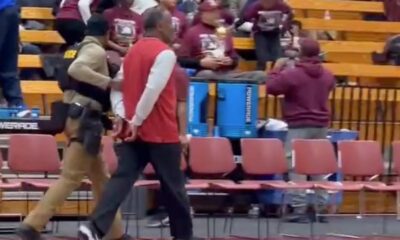
 HBCU ORIGINAL4 weeks ago
HBCU ORIGINAL4 weeks agoTuskegee Coach Benjy Taylor Escorted Off Court in Handcuffs After Postgame Incident
-
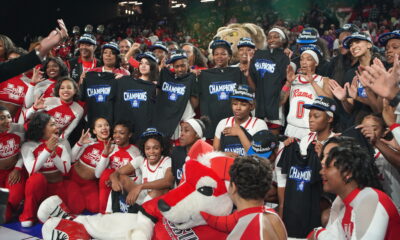
 HBCU ORIGINAL22 hours ago
HBCU ORIGINAL22 hours agoWinston-Salem State Makes History, Captures First CIAA Women’s Basketball Championship
-
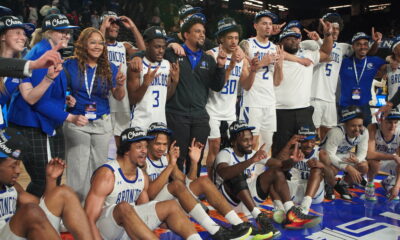
 HBCU ORIGINAL22 hours ago
HBCU ORIGINAL22 hours agoFayetteville State Rallies Late to Capture 2026 CIAA Men’s Basketball Championship
-

 HBCU ORIGINAL2 days ago
HBCU ORIGINAL2 days agoBluefield State Survives Virginia State Rally, Advances to CIAA Championship Game
-
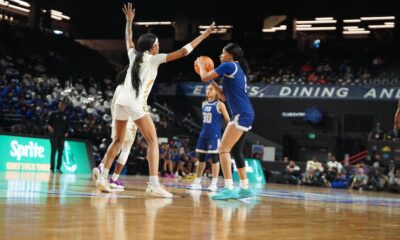
 HBCU ORIGINAL2 days ago
HBCU ORIGINAL2 days agoFayetteville State Outlasts Bowie State, Advances to CIAA Women’s Championship
-

 HBCU ORIGINAL2 days ago
HBCU ORIGINAL2 days agoWinston-Salem State Dominates Claflin, Advances to CIAA Women’s Championship
